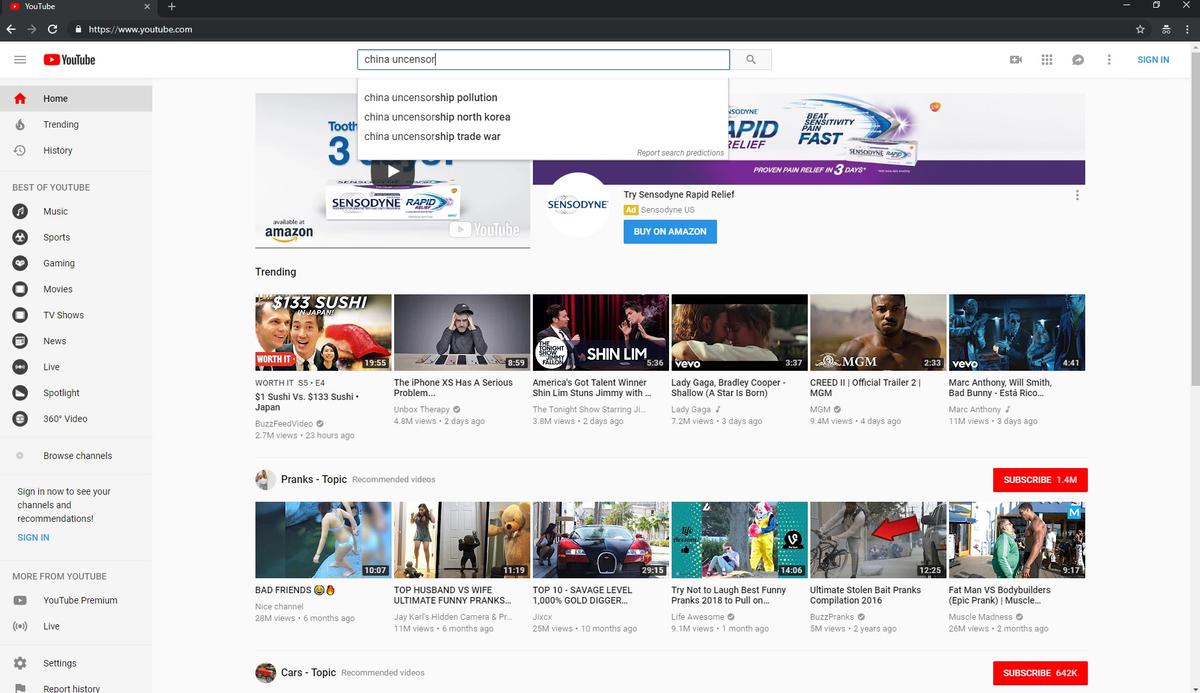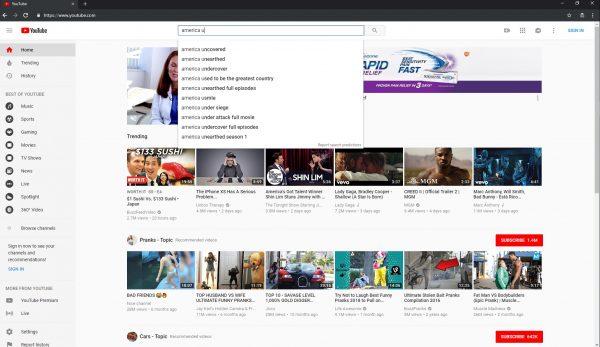The most popular Youtube channel focused on Chinese politics is missing from its search suggestions just as YouTube’s parent company, Google, faces scrutiny for allegedly developing a censored web search app for the Chinese market.
While typing into the YouTube search bar, the website provides a drop-down list of suggested search queries, which appears to consist of popular searches, videos, and channels.
It appears, though, that this is not because of Youtube’s targeting of the channel, but because Youtube associates the word “uncensored” with search queries of adult content.

China Uncensored, hosted by Chris Chappell, adopts a late night show format and mixes humor with serious analysis of Chinese politics and society. It also regularly picks apart the repression of Chinese people by the ruling communist regime, including topics deemed “sensitive,” such as its persecution of rights activists, Falun Gong practitioners, and house Christians.
“We report on Chinese censorship all the time. I mean, that’s literally in our name—China Uncensored,“ Chappell said in a statement to The Epoch Times. ”We’ve also reported on Google’s behavior in China. Now I’m not saying Google is intentionally censoring our YouTube channel in their search results. But if they are, well, I guess it means we’re doing something right.”
Chappell and his production team also run the YouTube channel China Unscripted. Despite only sporting some 5,300 subscribers, that channel shows up as the No. 3 suggestion when one types “China un” into the YouTube search bar.
Another channel run by the same team, America Uncovered, has just over 44,000 subscribers and shows up as the no. 1 suggestions when one types “America u” into the search bar.
Typing the world “uncensored” alone in the search bar yields no suggestions.

Many of China Uncensored’s videos have been demonetized by YouTube, meaning their videos are devoid of ads because YouTube evaluated them as “unfriendly” for advertisers.
The Dragonfly Debacle
Google, which owns YouTube, has recently been accused of trying to cater to the Chinese regime by developing a mobile web search app that monitors users and censors topics sensitive to the regime, like democracy, human rights, and peaceful protest.Poulson said he first learned about the project from media reports but said details about Dragonfly “were discussed extensively on internal mailing lists” at the company.
The Chinese Communist Party runs the world’s most sophisticated system of internet censorship and requires foreign companies to comply with the censorship as a condition of working in China. Companies must also share with the regime any data they store in China.
Google ran a censored version of its search engine in China from 2006 to 2010, when the company backed out. Its stated reason for leaving was a cyber attack originating from China that targeted the Google email accounts of dozens of Chinese human-rights activists. On the business side, however, Google had struggled to make inroads in a Chinese market skewed in favor of domestic companies backed by the regime.
Google responded to a request for comment, but didn’t provide one.





